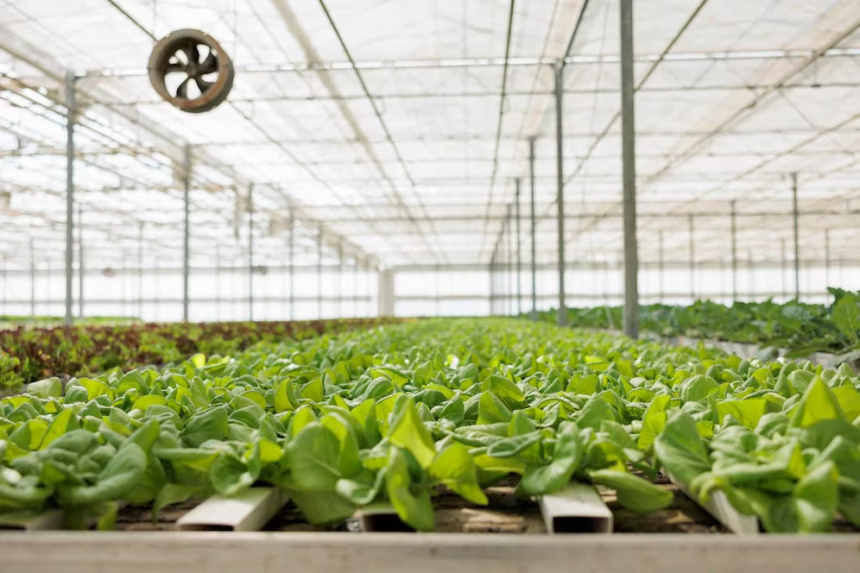Hydroponic basil farming is fast becoming a popular solution for urban farmers seeking to grow fresh, high-value crops in small spaces. With the rising demand for herbs in restaurants, supermarkets, and households, basil stands out as one of the most profitable and easiest herbs to grow using hydroponic systems. For urban dwellers looking to break into agribusiness, hydroponic basil farming offers a sustainable, space-efficient, and profitable entry point.
Why basil is ideal for hydroponic farming
Basil thrives in controlled environments and is well-suited to hydroponic systems. It grows quickly, has a high market demand, and delivers multiple harvests per planting cycle. Urban farmers can grow basil on balconies, rooftops, or even indoors with the help of grow lights and temperature controls.
Benefits of growing basil hydroponically include:
- Faster growth compared to soil-based farming
- Reduced risk of pests and soil-borne diseases
- Year-round production regardless of weather
- Higher yields in smaller spaces
- Water-efficient production systems
With minimal land requirements and controlled input use, hydroponic basil farming aligns well with the goals of modern, sustainable urban agriculture.
Types of hydroponic systems for basil
Several hydroponic systems work well for basil farming, and the choice often depends on space, budget, and scale. The most commonly used systems for urban setups include:
- Nutrient Film Technique (NFT): A thin film of nutrient-rich water continuously flows over the plant roots. Ideal for leafy herbs like basil.
- Deep Water Culture (DWC): Plants are suspended in a nutrient solution with air stones for oxygenation. Suitable for small-scale indoor setups.
- Ebb and Flow: Water floods the root zone at intervals and then drains back into the reservoir. Requires a timer and more space.
- Vertical towers: Stackable units that maximise space and are perfect for rooftop gardens or balconies.
Each system has its pros and cons, but NFT and DWC are the most accessible and effective for small urban growers focused on basil.
Essential conditions for growing hydroponic basil
To achieve healthy, high-yield basil crops, urban farmers must maintain optimal growing conditions:
- Temperature: Basil prefers warm temperatures, ideally between 20°C and 28°C.
- Light: 12 to 16 hours of light per day using natural sunlight or LED grow lights.
- pH level: Maintain a pH between 5.5 and 6.5 for proper nutrient absorption.
- Nutrient solution: Use a balanced hydroponic nutrient mix with nitrogen, phosphorus, potassium, calcium, and magnesium.
- Humidity: Ideal relative humidity is between 50% and 70%. Proper ventilation prevents fungal diseases.
Monitoring and adjusting these conditions regularly will lead to lush, aromatic basil ready for the market in as little as 4 to 6 weeks.
Harvesting and marketing hydroponic basil
Basil can be harvested multiple times through a process called “cut-and-come-again,” where leaves are snipped above a node to encourage bushier growth. Urban farmers can typically get two to three harvests from one plant over its lifecycle.
Marketing opportunities for hydroponic basil include:
- Supplying fresh herbs to restaurants and cafes
- Selling in local farmers’ markets or health food stores
- Packaging for supermarkets and convenience stores
- Offering subscription herb boxes to urban consumers
- Collaborating with caterers and boutique food brands
Because of its clean, pesticide-free appeal, hydroponic basil has a strong selling point, especially in urban centres focused on healthy living.
Challenges urban farmers may face
While hydroponic basil farming offers many advantages, it also comes with a learning curve and some upfront investment. Common challenges include:
- Initial setup costs for equipment and lighting
- Managing water quality and nutrient balance
- Dealing with power outages that affect system operation
- Navigating local regulations or permits for urban agriculture
- Marketing and distribution in competitive spaces
With proper planning and education, these challenges can be managed effectively, especially with online communities, training courses, and support from urban farming networks.
Hydroponic basil farming for urban farmers is a practical and profitable venture that aligns with the modern shift toward sustainable, local food production. It makes smart use of limited space, conserves water, and produces a high-demand crop in record time. For city-based entrepreneurs, students, or hobbyists, starting a hydroponic basil garden can be the first step toward a rewarding and eco-conscious agribusiness journey.







